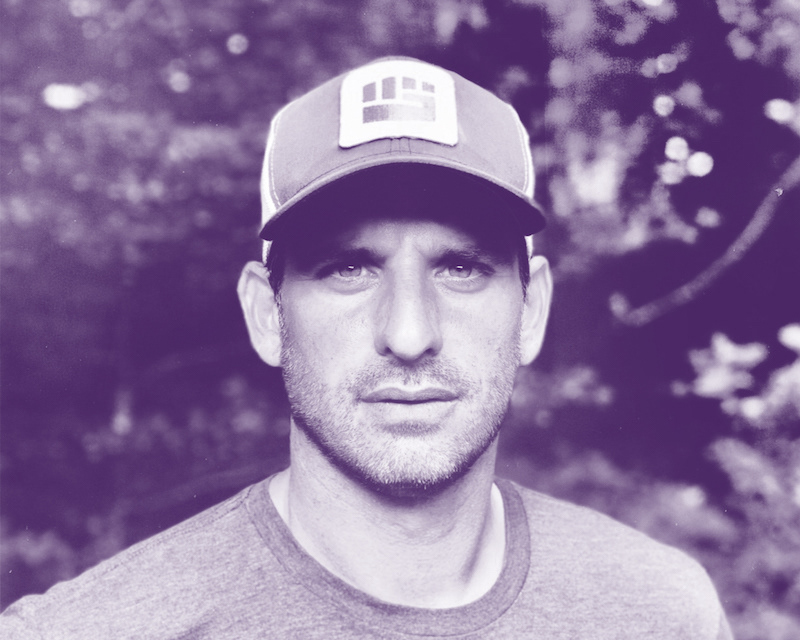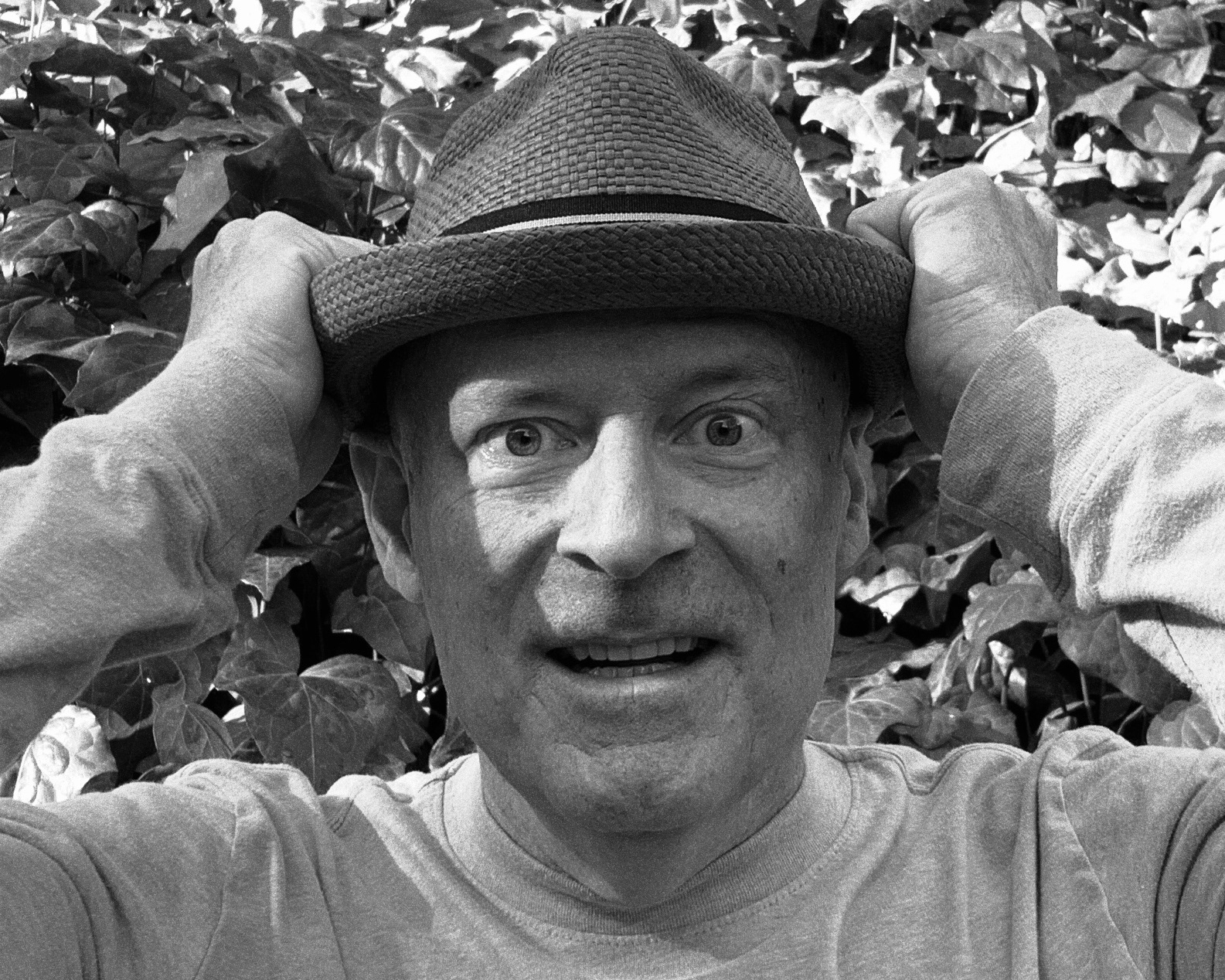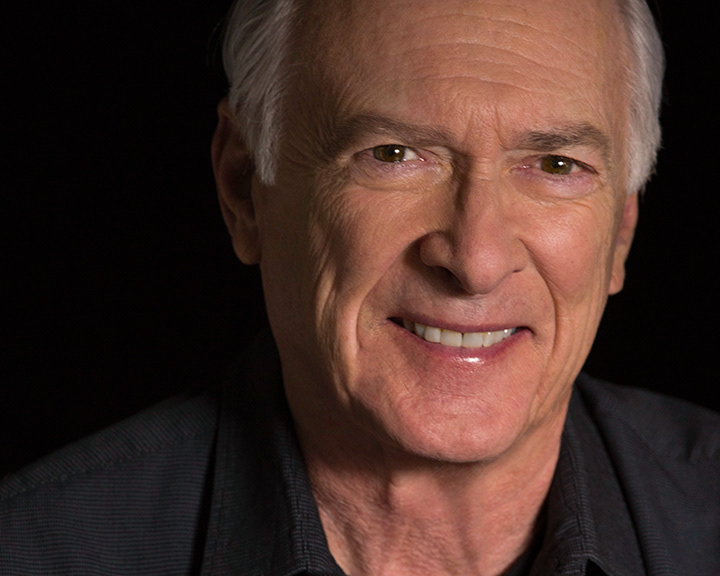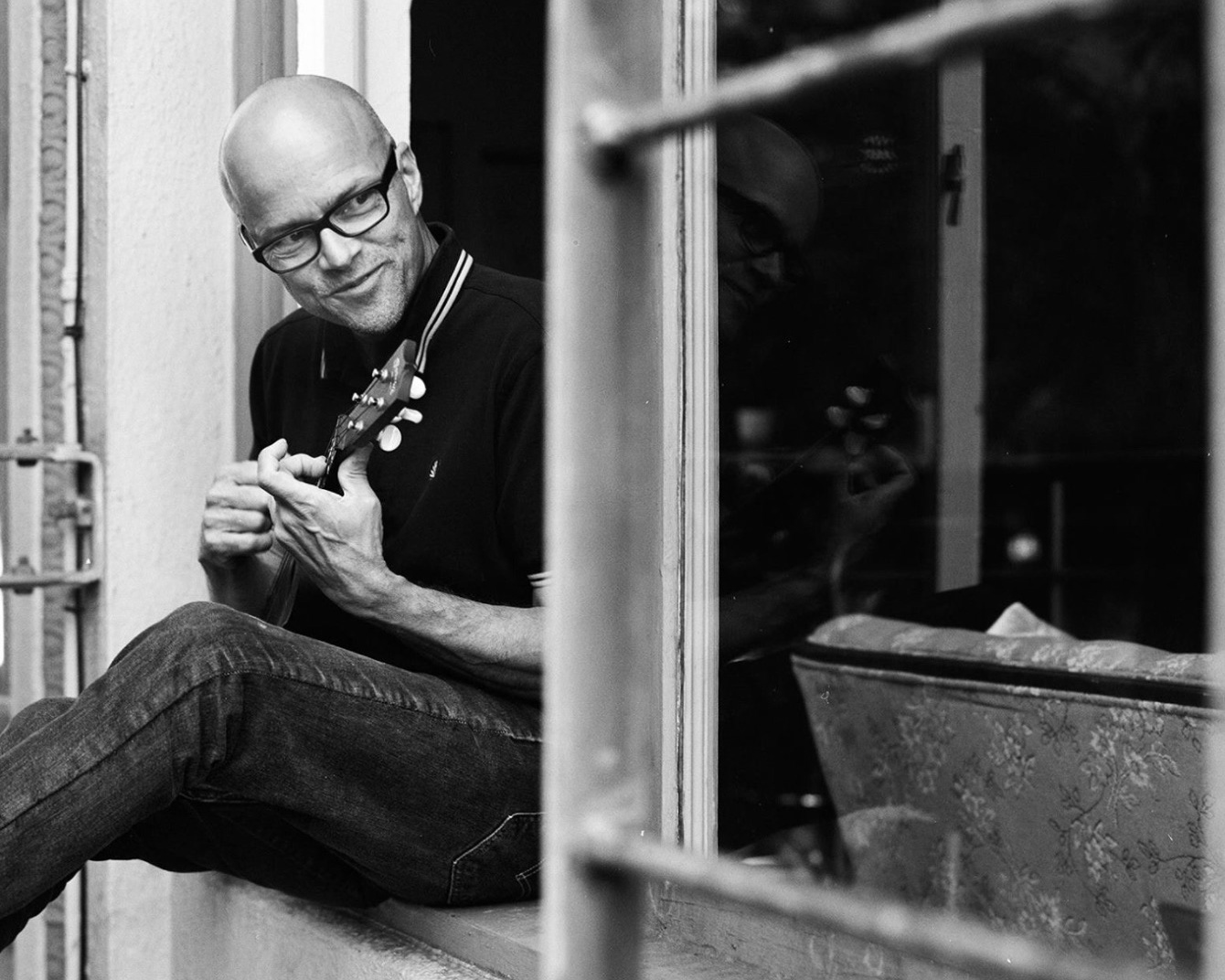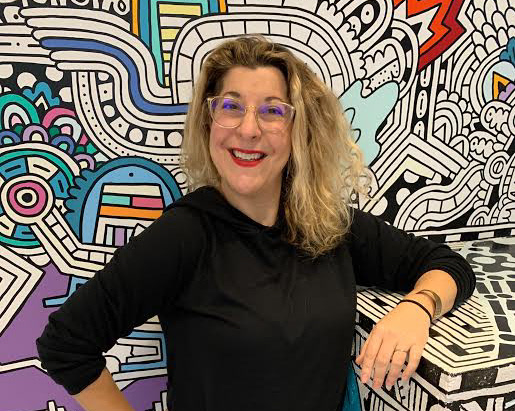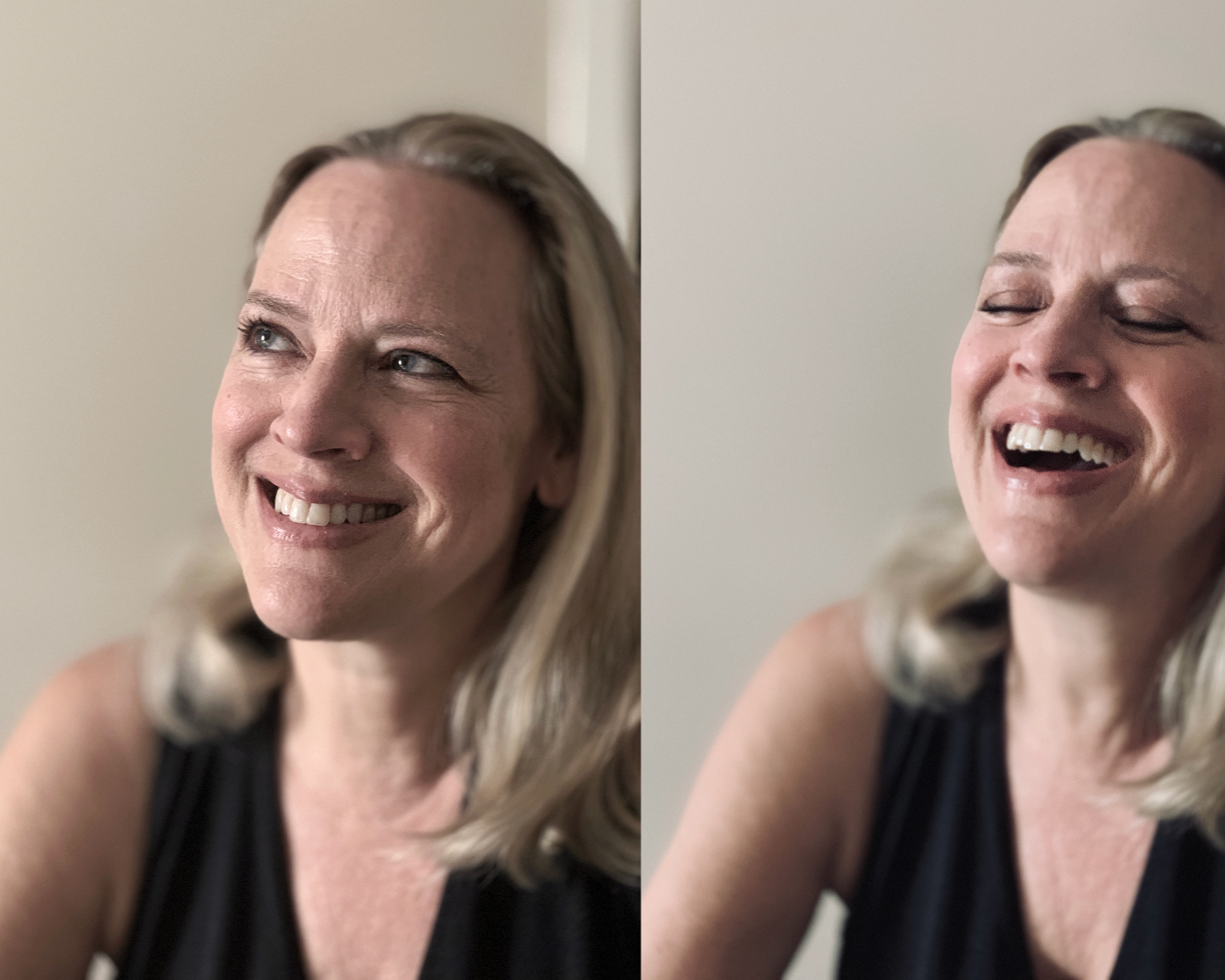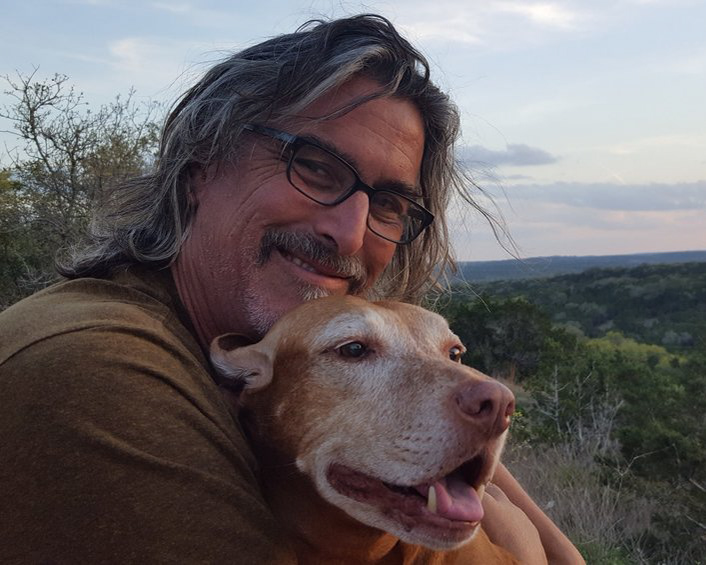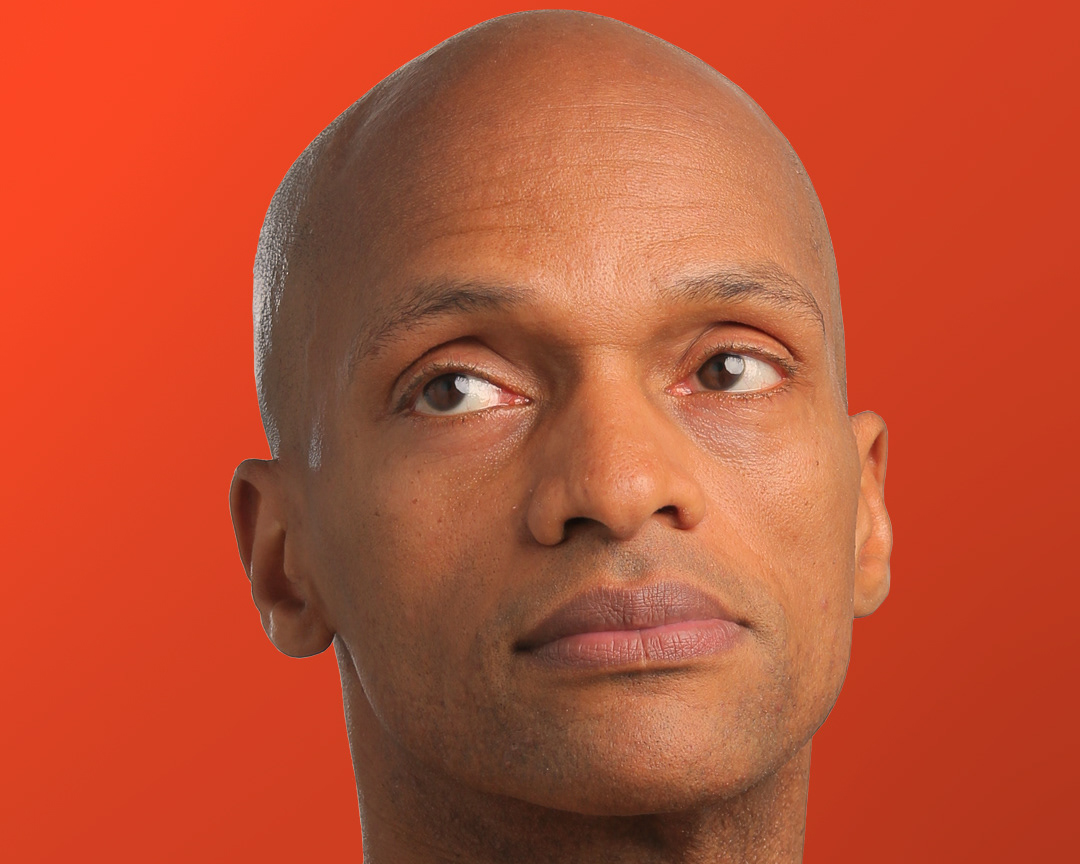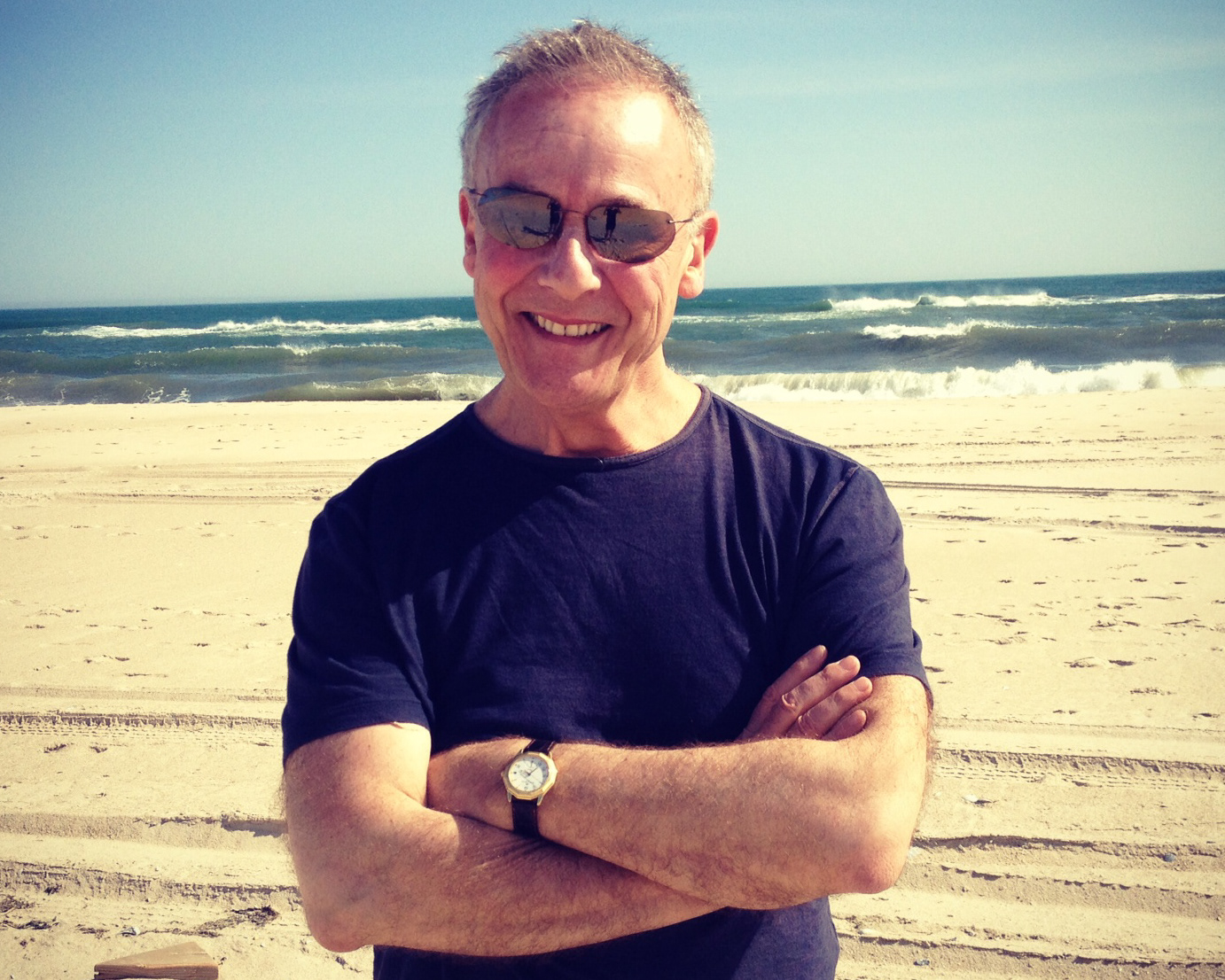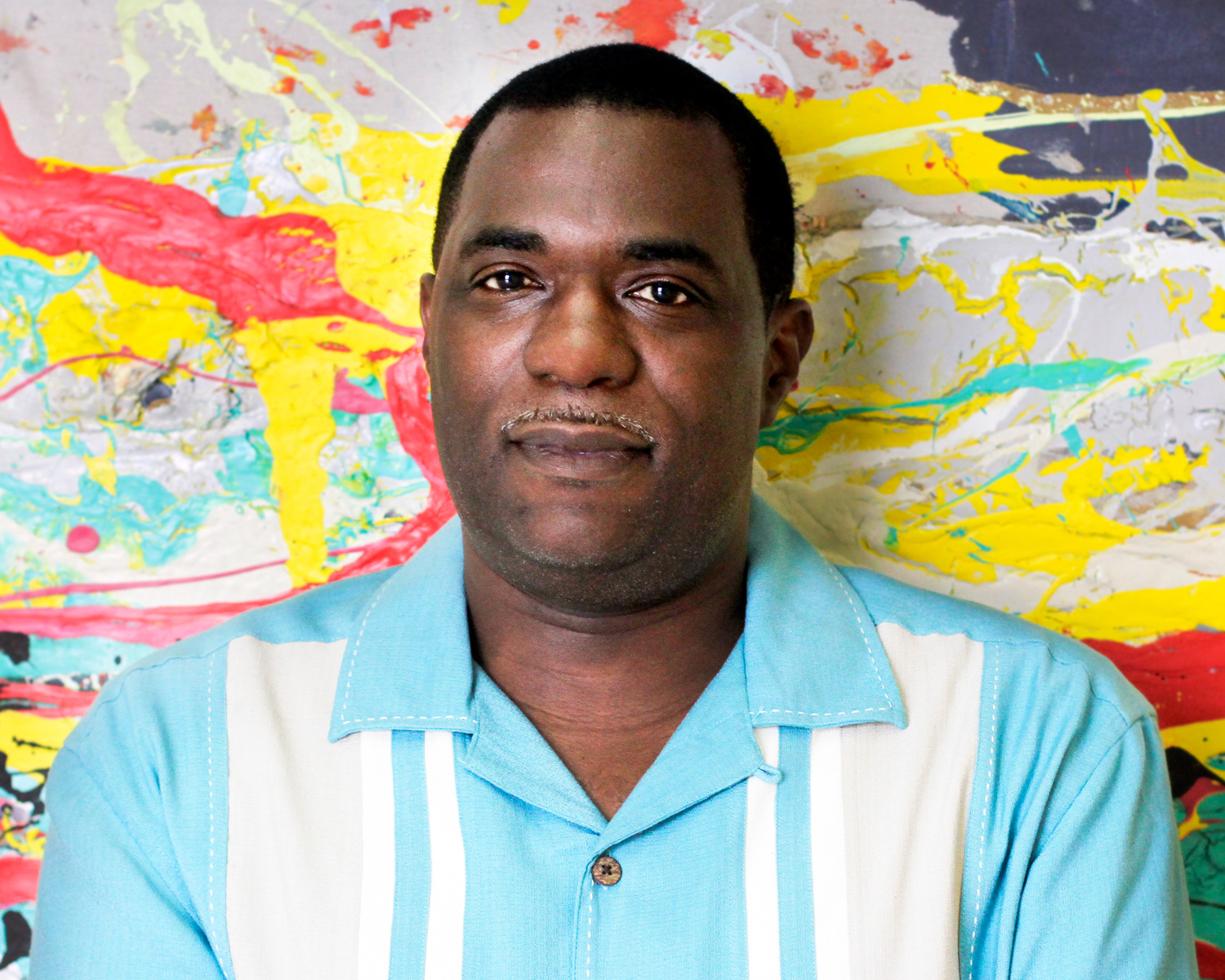He's known in the business simply as, 'Nobby'. English-born David Nobay fell into advertising by accident. Hired by Ogilvy Direct London at 19, the aspiring artist turned copywriter launched a colorful 25-year career as an international creative director.
He then went on to co-found several creative companies; notably ANTHEM BBDO (London), and both Droga5 and Marcel (Sydney). Alongside an incredible team, creatively led Saatchi & Saatchi Sydney to being named Australian Agency of The Decade, as well as sat on Saatchi & Saatchi’s Global Creative Board for five years.
Nobby has won his share of shiny things and sat on plenty of interesting global award juries, notably Cannes Titanium and D&AD Impact, as well as chaired many global juries; from South Africa to New York.
But all that pales compared to his 'side-gigs' (if you can call them that).
He co-founded CreativeSpirit (Please support at creativespirit-us.org) in the US that continues to find employment for skilled and brilliant neurodiverse people in our broad, creative industry. In 2021, CreativeSpirit was awarded by FAST COMPANY as one of their favorite World- Changing Ideas.
He wrote and staged a theatrical play, MOVING PARTS, completed an impressionist painting exhibition for Maunsell Wikes Gallery, co-hosted a TV show RECIPE TO RICHES for Ch10/FreeMantle TV and created an 8 part-poetry/film project “Artbreaks” for the ABC Arts Channel.
This advertising wunderkind may have lost the 'kind' but has managed to keep the 'wunder' intact.
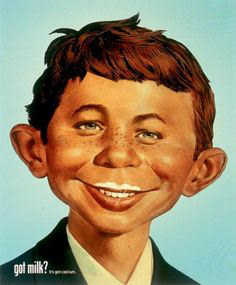
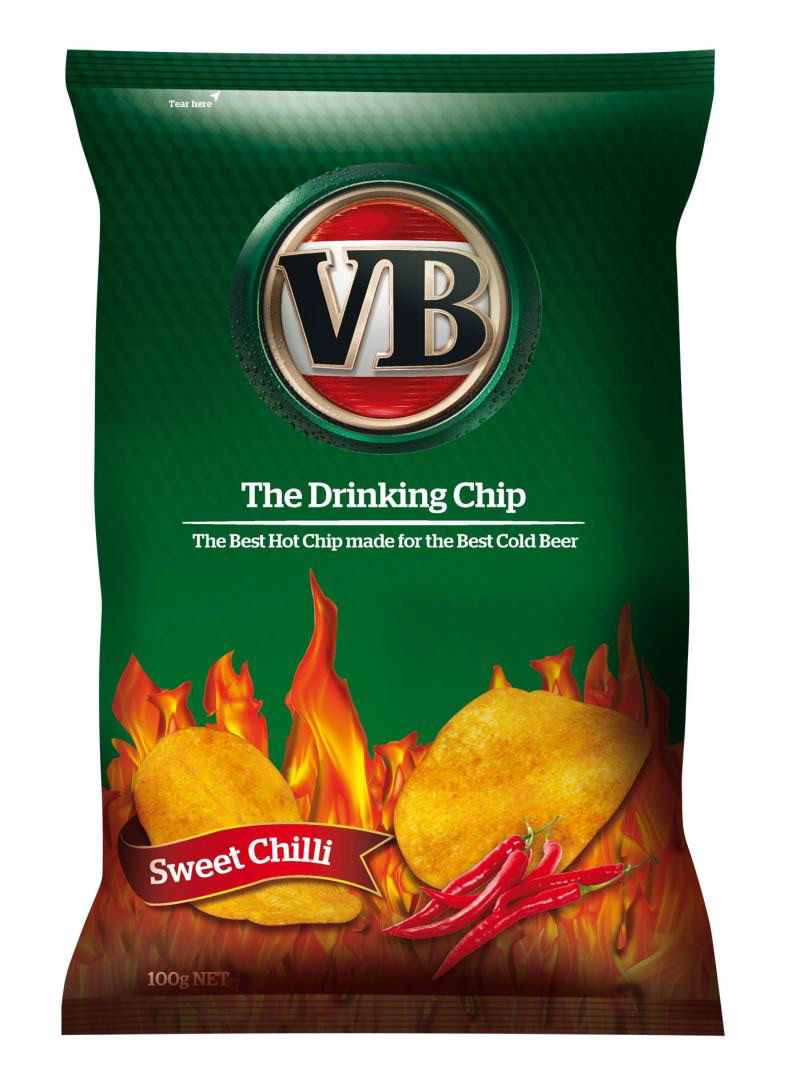
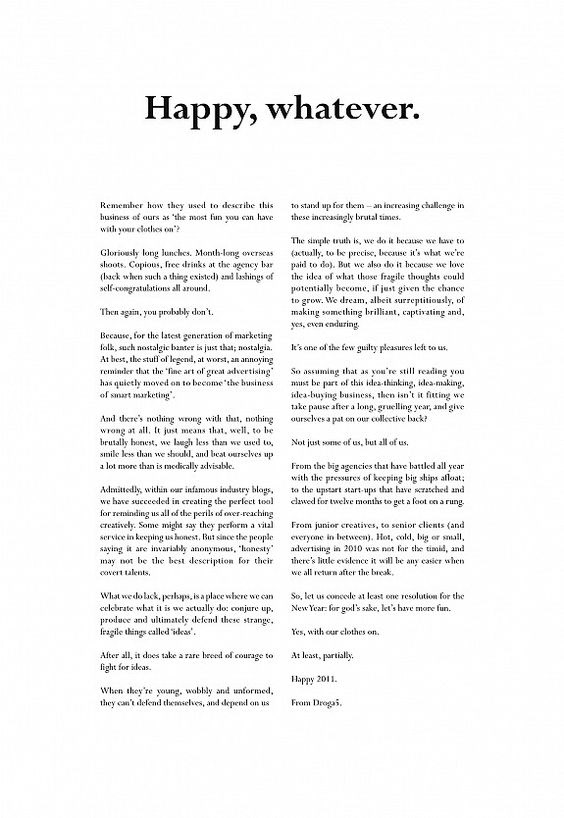
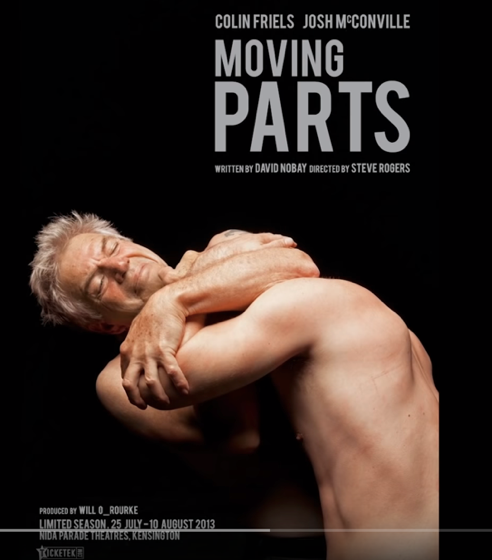
Is ageism something you thought about in your 30s? In your 40s?
Absolutely not. Ironically, the first time I became aware of my age was for the exact opposite reason. I’d just got promoted to an Associate CD at The Ball Partnership in Hong Kong. I was very young for the title; I think about 25 (keep in mind, I started in the ad business in London at the tender age of 19). My boss at the time told me to tell our biggest client that I was 30, if he asked. He explained that, in the Chinese culture, it was hard for a client to value the advice of someone younger than his own child. I’m not even sure if that was culturally accurate, but I do remember growing a goatee beard, which never really left. Although it’s now grey.
"They boast sage advice that only comes from doing, not talking. In that sense, age and creativity have only ever been linked in my head in a positive way."
Is ageism something that's affected you? What are the challenges you faces as someone getting older in the business? Do tell.
I can honestly say it never crossed my mind. One of my greatest mentors was Drayton Bird from my early Ogilvy days: still an acknowledged guru of direct marketing, and still kicking it hard in his late 70s. Same with Bob Isherwood, my Global CD at Saatchis. Bob is a bona fide ad rock star. He’s got to be banging on the door of 80. Still looks like he should be on stage with the Stones. Still deep in creativity. Still active at the One Club and as curious and connected as he was when he was shepherding us all on the Saatchis Global Board. For me, these guys were (and are) legit Jedis because they have spooky wisdom. They also have incredible stories. They boast sage advice that only comes from doing, not talking. In that sense, age and creativity have only ever been linked in my head in a positive way.
Do the realities of the ad business contribute to the decisions you made/the path you've taken?
That sounds like a weird question? Did reality affect me? Well, given the amount of alcohol I infamously imbibed for the first 25 years of my career, possibly not! To be honest, for much of that journey, I was trained to believe that, when it came to creativity, reality was the enemy. After all, isn’t that the true mark of creativity? Challenging reality? Our global war-cry at Saatchis was (and still is) NOTHING IS IMPOSSIBLE. At Droga5, we took pride in the sheer audacity of our ideas. Reality was kryptonite. Bending time and budgets was what made what we did exciting. Pulling it off was what made us special. I don’t think I’m alone in being an iconoclast at heart. Show me a creative who enjoys following orders and I’ll show you a suit hiding out in marble-wash jeans.
What are your thoughts on where you are now, as you look back on your creative journey?
I never look back at “my creative journey”. That’s not about false humility, it’s just the way my brain works. It’s like I only have enough storage in my personal thumb-drive for 6 months, max. After that, I have to delete files. Otherwise I can’t create new stuff. I remember the last time I was at Cannes. I’d just set up MARCEL for Publicis in Australia. I was there on the Croisette at some global board thing. One of the Global CDs asked me how many Lions I’d won over the years. I said I honestly didn’t know. He flat out didn’t believe me. Turns out this sad oxygen-thief had a bloody personal dossier of every single shitty award he’d ever won, over his entire career. Not just the shiny stuff, but finalists. For every regional show imaginable. Thousands of entries. Stats on stats on stats. I just laughed at him. You know the type, they cram their home offices with metal, like they’re purple hearts. Don’t get me wrong, awards were pivotal to me for years. They were the agreed metric by which I was ranked, my agency was ranked. Put bluntly, awards greased the ladder. But, by definition, they were only good for a year. Two minutes off the podium and you were already counting down the 8 months remaining til the next Call For Entries closed out. I once heard entering and winning awards described as “painting the Sydney Harbour Bridge”. The point being, the process never ends: by the time the new paint is drying at one end, the old paint is chipped and old at the other. In truth, it’s a game. One I got bored with years ago. It’s also a trap, because it locks you in the past. Like sad, doughy ex models pouring over photo-shoots from their six-pack heyday. Like I said, if I’m thinking about my last gig, or last award or even last agency, I’m not conjuring up my next creative challenge. I’ve heard too many CDs my age lamenting the way it used to be; romancing the “good old days”. It’s nauseatingly dull. Especially if you’re sober, as I have been for 8 years. The truth is, people don’t want to work with them because they’re fucking boring. It’s not because they’re over 40. They’re scratched records; stuck on the same repeating track.
"I’m not a fan of bumper-sticker philosophy, but I heard this one recently, and I think it’s a keeper: Argue like you're right. But listen like you're wrong. It only took me 30 years to see the deceptive genius in those two lines."
What do you think people over 50 can offer someone 20 years their junior? Things that are unappreciated or just overlooked?
Have you seen that Buddhist circle of life sketch–where we start as a foetus, all curled up, head to toe, then complete our journey in the same position, only now all wrinkly? I’ve always loved the simplicity of that. The elegant symmetry. The point here is, as children, we basically don’t give a shit about anyone or anything. We’re obsessively curious. Deliciously selfish. We question everything. We are dangerously reckless, because we have little or no responsibility. We laugh at risks that adults would abhor. We take liberties. We are arrogant enough to trust our instincts. We are open to weird stuff because, crucially, we don’t yet believe it to be weird. We have not yet been smothered by the leaden blanket of convention. No-one has yet explained protocol to us. We flap our invisible wings; impervious to the silent protestations of gravity. We do not ignore the rules. We are simply unaware that rules exist. That is, admittedly, when we are very young. Before we have officially surrendered to the saddle and harness that signals the eve of adulthood. Sounds fun, right? Well, as illustrated by our friend Budda, those days return. Not just the having to wear an adult nappy and being spoon-fed. The cool stuff, too. The point is, just about the time our knees begin to fail us and the first stabs of sciatica arrive, something equally profound bobs up…the faint, barely familiar whiff of eccentricity. Or, at least, the opportunity for a booster shot of it. I’m not talking skinny jeans and silly cars and all that mid-life crisis crap. I’m talking wearing what you want to wear. Saying what you think is important and true. Not impressive and cool. But profound. And fresh. And seemingly nuts. Now, call me idealistic, but aren’t those qualities still the juice that fuels the creative industry we call advertising? Or, if not the industry, at least the singular act of attempting to innovate? THINK DIFFERENT: here’s to the crazy ones. “The crazy ones”? Hang on, last time I looked, age and crazy were joined at the hip, albeit titanium.
And what if you have nothing profound to say? Try using all this free time you could be filling with moaning about the ills of ageism to hang out with strange people who you find genuinely interesting and provocative. And then, just listening. In my personal experience, I was pretty good at hearing when I was in my 20s and 30s and even 40s, but I didn’t catch on to the nuance of “listening” til I hit 50. I’m not a fan of bumper-sticker philosophy, but I heard this one recently, and I think it’s a keeper: ARGUE LIKE YOU’RE RIGHT. BUT LISTEN LIKE YOU’RE WRONG. It only took me 30 years to see the deceptive genius in those two lines.
What is your advice to people who are nearing or over 40 in the ad industry?
Make stuff. Tangible stuff. Be it an independent film or a recyclable teapot. Just don’t talk about it. Don’t tell people what you plan on doing. Don’t bore them with what you did a decade ago. Or worse, what you were going to do before a client killed it. Surprise them with what you just did. Make stuff that you love. Make stuff that you fucking hate so much you learn something new. Just don’t make things you feel indifferent about. This ad business has always been tougher than we want to let on. After all, we’re not exactly running a triage ward, sewing on limbs. It’s understandably tricky to plead sympathy for an industry caricatured by long lunches and overseas shoots. But, psychologically at least, this job grinds you down. And some never get up again. Balancing on the knife-edge between being a cynical hack and a tortured artist is a feat only natural to a lucky few. You care too much creatively, advertising will crush you: but don’t care enough and you’re vanquished to the swill bucket of obscurity.
How are you approaching the next 10 years? What does the future hold?
I have no idea what the future holds. If I knew that, I would have bought bitcoin earlier. I can tell you, I approach tomorrow the same way I did yesterday: I surround myself with genuine friends. People I respect. People who open my mind to fresh angles; from a brilliant, new podcast, to just a simple, honest opinion. One of the many advantages of getting older is realising that, if you can count your real friends on two hands, you are richer than most. And by real friends, I mean the ones who tell you truths; however awkward. The one’s who want and need nothing more from you than the candour you demand from them. After well over 30 years in the ad industry; from Hong Kong to San Francisco, New York to Sydney, a surprisingly low percentage of my inner circle has anything to do with advertising. They are, however, all creative in their peculiar way. It’s why, whilst some observers of my career have accused me of being distracted by vanities outside my core industry (from writing plays, to creating interactive sculptures, poetry projects and co-founding various new product ideas), I’ve roundly ignored the hue and cry. Several times this has famously cost me my job. But, in return, it has gifted me with a creative palette so much more colourful than the one I’d be holding if I’d simply doubled-down on a corporate career in adland. My “distractions” are what inform my version of advertising. It’s why I suspect I’m still sought out by clients (albeit less frequently than I might like) to weaponize my personal cocktail of sagacity and eccentricity. One of the symptoms of sobriety is that you find yourself with at least twice as many hours in the day. I happily devour this surplus bandwidth by generally juggling, fermenting and actively developing at least half a dozen projects at any given time. Right now, that includes being 300 pages into my first novel, working through the third re-write of my latest screenplay, working with an eclectic group of investors on launching an all new Art Festival in Australia in 2022, funding and advising on other people’s start-ups and, yes, getting paid to create marketing ideas for the rare, few local clients who are still intoxicated by the gravitational pull of a seemingly crazy idea.
"For me, the story we need to shout louder is more vivid diversity...a genuine celebration of what happens to our ideas when we wrap brilliant and unique minds born of genuinely diverse roots around the table."
What's the one thing the industry could do to make you believe they are combating ageism seriously?
As a 54-year-old, I personally think we’re best served not focusing in on ageism. For me, the story we need to shout louder is more vivid diversity within our creative departments. Not token or prescribed diversity, but a genuine celebration of what happens to our ideas when we wrap brilliant and unique minds born of genuinely diverse roots around the table. Along with my amazing Partners in New York, Laurel Rossi and Gina Grillo, I’m the Co-Founder of CreativeSpirit (creativespirit-us.org) that works to open doors in the broader creative industries (from tech and film, to advertising and fashion) to our incredible pool of neuro-diverse talent. The war-cry we have led with since I first launched CreativeSpirit in Sydney over a decade ago is simply “WHAT COULD BE MORE CREATIVE THAN BEING DIFFERENT?” I think the question has real teeth when applied to every thread of our social tapestry: from race and gender, to, yes, age.
What do you see as a potential solution to ageism in the industry? Any thoughts on possibly unionizing?
Instead of junior teams and senior teams, why don’t agencies construct teams where a 25-year-old partners with a 50-year-old? For an industry that lectures our clients on disruption so much, it’s sad that the basic DNA of the creative department (teams) is as binary and homogenous as it was 30 years ago? And no, I wouldn’t unionize. Pirates don’t need union cards, they need new lands to conquer.
"I don’t really give a shit about awards these days. Sure, a Black Pencil would be nice, but it’s not my focus anymore."
What are some positive things you've experienced growing older in the business?
Generally speaking, I can usually see the punch coming before it lands on my chin now. After over 30 years in this nutty business, I won’t say I’ve seen it all, but I’ve definitely witnessed most of it. Does that make me more cynical than I was 20 years ago? Undoubtedly. But given that BS in this business has risen at about the same pace as budgets have declined, I personally think a good dose of reality isn’t a bad thing. Ironically, I’m also probably more idealistic about ideas now. Not advertising as a structure, but certainly the pure power a killer idea as a true catalyst for social change. I don’t really give a shit about awards these days. Sure, a Black Pencil would be nice, but it’s not my focus anymore. These days, I’ve earned the relative luxury of being able to be much more selective about the strategic challenges I choose to aim my brain at. That’s what my new venture (the-csuite.com) is all about. Working with senior people who still value a distinct point of view, regardless of whether it aligns perfectly with their own. That requires a lack of insecurity; which is a rarity these days.
Who do you look to for inspiration?
As I write this, I can see two pieces of art staring at me from across the room: one is a painting by my nine-year old daughter, Posie. The other; a self-portrait given to me by my old friend (in both senses!), the legendary director Tony Kaye. It occurs to me that while both these stars inspire me individually, as a duo, these two very polar generations say something to me much more provocative. Tony, like Posie, is fearless creatively. Posie, like Tony, creates with no concern for what has come before. Or what is conventionally expected. Or what is safe and comfortable and commercial. They are both artists, in the purest sense of the word. Creators, whose imaginations aren’t caged by expectation. And, let’s face it, what could be more inspiring than that?

